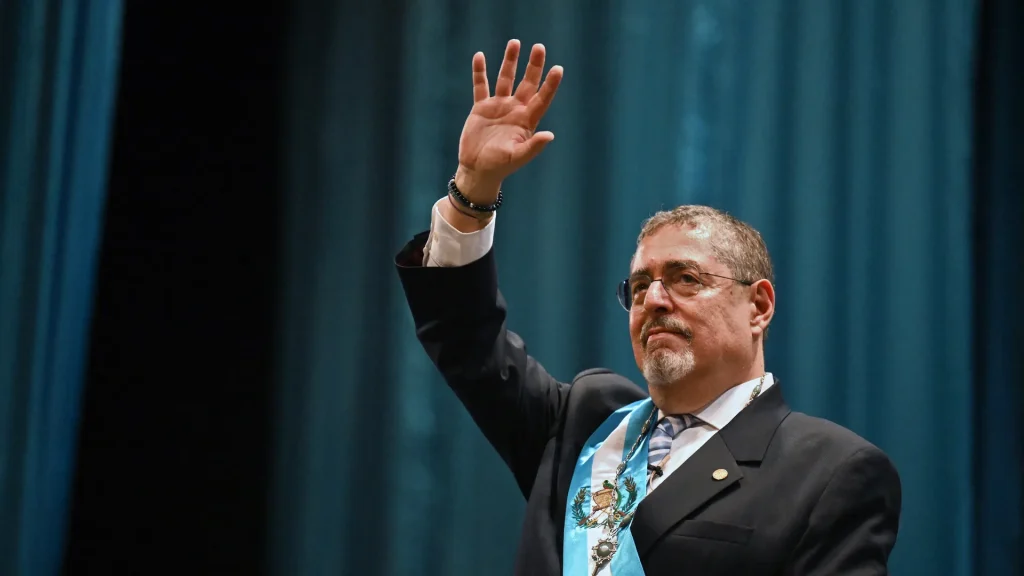
Photo Credit: Johan Ordóñez/AFP via Getty Images
By: Lia Rosado, 2L
Following a history of corruption, Bernardo Arévalo was sworn in as Guatemala’s president early on January 15, 2024 after a last-ditch attempt by his opponents to delay his inauguration. This inauguration sparked a successful defense of the country’s democracy, as prior to his election, Guatemala was plagued by decades of repression.
Throughout the 1960s and 1970s, Guatemala was engulfed in a full-scale civil war, predominantly led by the country’s first guerrilla group, MR-13. Subsequently, the 1980s witnessed over 10,000 cases instances of extrajudicial killings. In response to this wave of massacres, Mayan leaders staged an occupation of the Spanish embassy in Guatemala City in 1980. Despite the Spanish ambassador’s appeals to refrain from violence, Guatemalan forces raided the embassy.
In 1982, General Efraín Ríos served as the head of state, marking a period of significant brutality in Guatemala’s history. From March 1982 to August 1983, his regime orchestrated a devastating campaign, resulting in the bloodiest phase the country had experienced. During this time, the Guatemalan government, under Ríos Montt’s leadership, conducted a ruthless “scorched earth” operation targeting the Maya population. This military initiative, which involved paramilitary units and forcibly conscripted local men forming “civilian patrols,” systematically attacked more than 600 villages. The residents faced horrifying atrocities, including rape, torture, and murder, while their villages were destroyed, and vital resources like crops and drinking water were contaminated. Declassified CIA cables from that era revealed the military’s sweeping actions in Mayan villages. The relentless violence instilled terror, leading to the displacement of between 500,000 and 1.5 million Mayan civilians, either seeking refuge in other regions within the country or becoming refugees abroad. Ríos Montt’s reign came to an end in 1983 when he was finally ousted in a coup.
Later, in 1986, a civilian government passed a new constitution and eventually initiated a gradual peace process that resulted in the signing of a U.N.-brokered peace accord in 1996. This agreement between guerrilla insurgents and the Guatemalan government formally ended the armed conflict.
Subsequent to the peace accord, the envisioned transformation towards a more democratic and progressive Guatemala failed to materialize in the “post-peace” era. Economic inequalities have intensified, especially among impoverished Maya and Ladino communities. Women continued to experience high levels of violence comparable to the wartime period. Persistent political corruption has remained deeply rooted, resulting in widespread disillusionment with the democratic processes.
That’s why Bernardo Arévalo’s inauguration is more than a political transition. It serves as a testament to the enduring hope of a nation to resurrect its revolutionary history and carve out a improved future, all thanks to the efforts of Guatemalans who have longed for decades to have a meaningful voice in their government.




